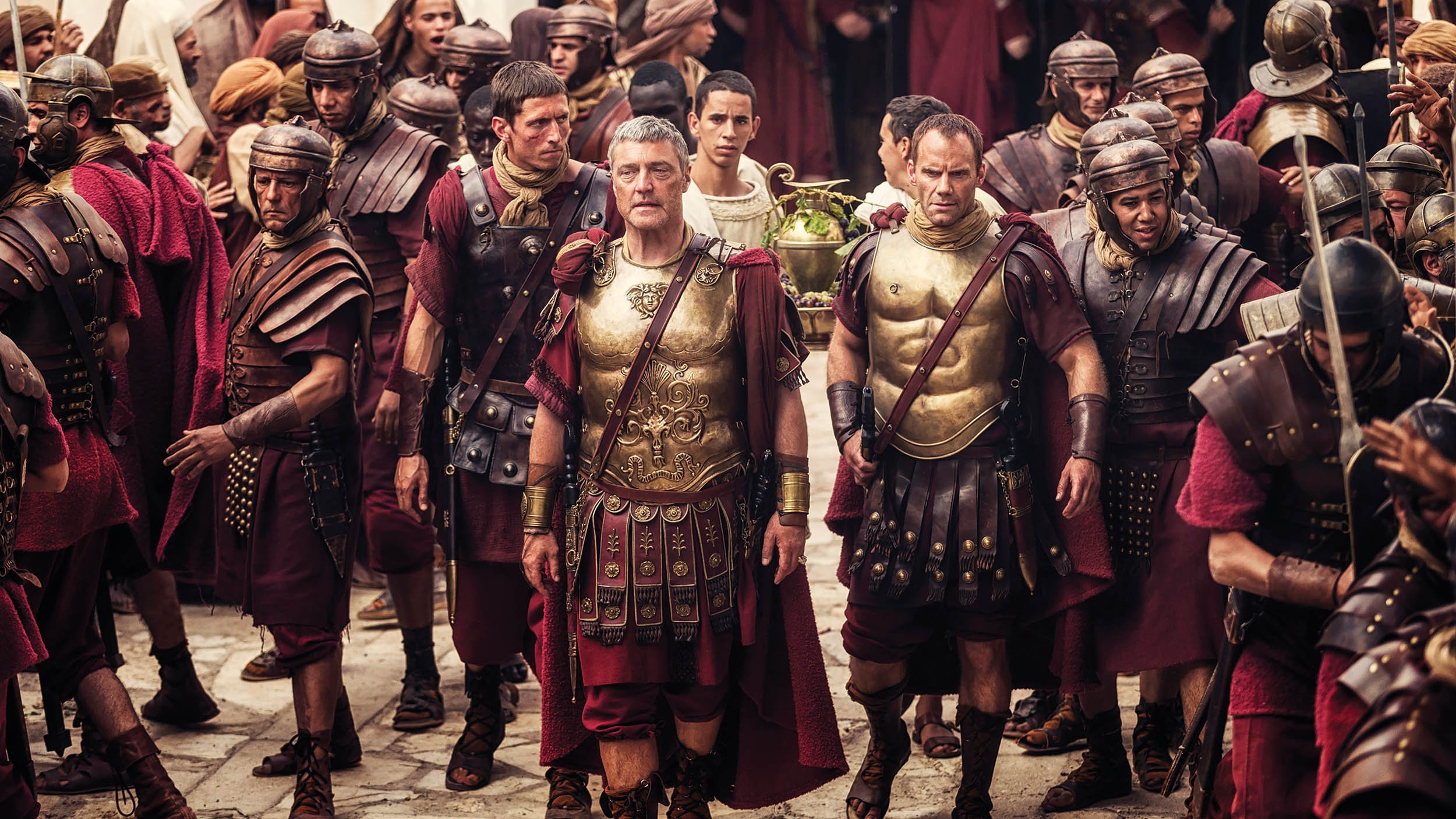
The basic tenets of the Christian faith are as familiar as they are difficult to fathom. Christ was born, lived an incredible life preaching to an incredulous population, then died horribly only to rise again three days later. For many believers, that's where the story stops—Christ conquered death and will one day come again. But those of us living in the 21st century only know who Jesus was because his Apostles were moved to share his message with people living in the first.
"These people didn't know they were going to be in the Bible," says Mark Burnett, who, along with his wife Roma Downey, is producing for NBC A.D. The Bible Continues, a television series inspired by the Book of Acts. "All but one of them died horrible deaths," continues Burnett. "On the other hand, if you've met God, what else would you do?"

Following the success of their History Channel miniseries, The Bible, the husband and wife duo determined that the next logical step would be to share the story of how the gospel spread to the masses. But the two wanted to ensure they were placing the Acts of the Apostles in the proper context, which meant they'd also need to expand the scale of their story to include leaders scheming in Rome or assassins meeting in secret. "The Bible was just the Bible, so every single part of it was in the Old or New Testaments, and we built moments around those scriptures," says Burnett. "For A.D., more than half is the Acts of the Apostles and the Epistles, but then the rest is asking, 'What was going on with Pilate?' 'What was going on with the Temple authorities?' 'What was going on with the Zealots, with the Herods?'"
The writers relied on historical texts as well as their imaginations to fill out the story where appropriate. "We are drawing from history, from the writings of Josephus and others at that time," says Downey. "But we're also taking the creative, artistic license that we would take with invented characters. For those that will be familiar with the book of Acts, there will certainly be checkpoint moments in each episode, and then the rest of the story is kind of woven around those checkpoints, where we have made assumptions to what people might have been thinking or feeling, to capture the danger of the times that these people were living in."

For example, Peter doesn't deny Jesus three times out of spite—he does so to protect himself from meeting the same fate. "That's the opening of the A.D. series and we see the horror and shame Peter experiences when, in the fear of the moment, he does deny that he knows Jesus, not just once, but three times," says Downey. "It's very powerful stuff."
All the Apostles went underground following Jesus's death, and following their decision to actively preach his message, almost all of them were martyred. That decision doesn't come easy, in the Bible or in A.D. "The most important thing in terms of storytelling is that the audience can identify that these figures from our Bible were real people," says Burnett. "They were just living their lives and the fears were real and we can identify easily with that today. Yes, clothing has changed and communication and transportation has all changed with technology, but humans haven't changed at all. It's still the same power struggles with people in authority."

Two of those figures, Pontius Pilate and Caiaphas, the Jewish high priest, conspire and scheme with and against each other in an effort to maintain order and control. In the series' second installment, Pilate executes members of the Roman legion right in front of Caiaphas as a show of his strength, a bloody burst of violence that has more in common with shows like House of Cards or Game of Thrones than it does with your typical Sunday school lesson. But for Burnett and Downey, that's part of the point. "There's no drama without conflict, and the occupation by the Romans was certainly a cruel, conflicted time," says Downey. "But our writers are amazing. We love the Bible, we are believers, and this is our story and we are privileged to be able to bring it to the screen in this way."
Adds Burnett, "It's a great way for young people to have a dramatic entry point to weave in and out of the Acts of the Apostles, visualizing what it must have been like to be these guys. They could have been killed every day in every alleyway, every doorway, and yet, God's plan was that these 12 guys would take down Rome."
This article appears in the Newsweek's new book, "Jesus: Rediscovering the Mysteries Surrounding Christ's Resurrection," by Issue Editor Johnna Rizzo of Topix Media Lab.
Uncommon Knowledge
Newsweek is committed to challenging conventional wisdom and finding connections in the search for common ground.
Newsweek is committed to challenging conventional wisdom and finding connections in the search for common ground.





